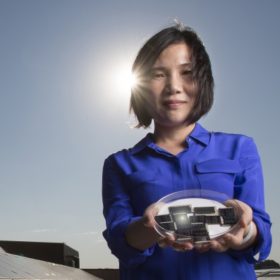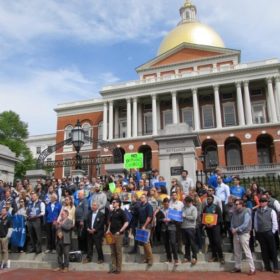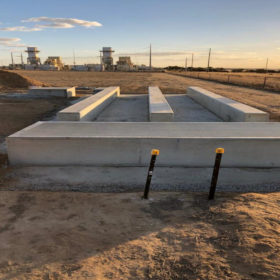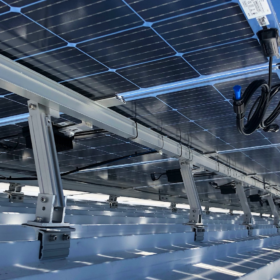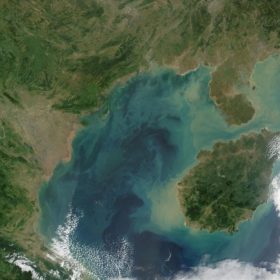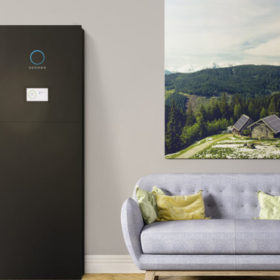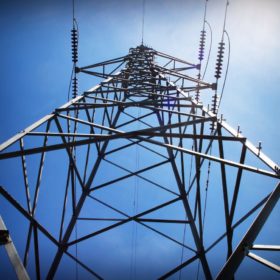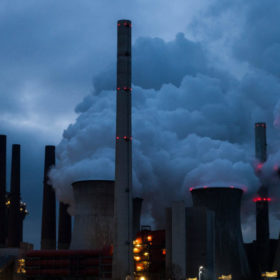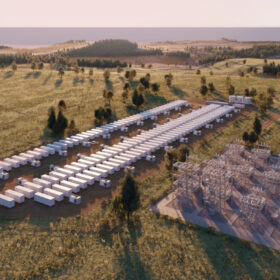Two top solar innovators honoured at national engineering awards
Two UNSW affiliated solar engineers have been honoured as some of the country’s most innovative engineering minds at the annual Engineering Australia award ceremony this week for their work on ground-breaking solar solutions.
The (solar) power of the people
Vote Solar and Solar United Neighbors in the United States have launched the “I love My Solar” postcard campaign to celebrate two million solar installations nationally. This campaign could be a step towards a larger role that solar consumers could play in American politics.
High voltage interconnection in place, installation set to get underway at WA’s largest PV project
Chinese PV module maker and project developerRisen Energyis pushing its 132 MW Merredin Solar Farm in WA’s Central Wheatbelt towards full scale installation. The company is hungry to meet its ambitious goal to develop 2 GW of large-scale solar PV projects in Australia.
Vicinity sets net zero carbon target by 2030, as $73 million solar program nears completion
On the back of a combination of its industry-leading solar program and energy efficiencies, Vicinity Centers has announced a zero net carbon target by 2030 for its 34 shopping centers.
Grid data transparency vital to making the case for renewables in Vietnam
With a glut of solar capacity having come online this year, cheaper financing would help keep some of that momentum but policymakers cannot be persuaded of the economic benefits of clean energy unless state-owned utility EVN opens up.
UniSA research finds batteries make economic sense in South Australia
Under the right conditions, solar batteries are economically beneficial for South Australian homeowners and can pay for themselves off within the warranty period, a new research finds.
AEMO: Australia will need 15 GW of utility-scale storage by early 2040s
Increased storage and strategic transmission development will be needed to ensure the lowest cost and risk transition of Australia’s energy system, the Australian Energy Market Operator states in its latest study. In 20 years time, the need for storage will be at a scale not seen before in the NEM, and both pumped hydro storage and distributed storage are set to play major roles in lowering wholesale electricity prices and building a reliable and resilient power system.
Industry Super Investment report warns lack of energy policy thwarting investment
Australian super funds have called out for “comprehensive” and “long term” energy policy to be put in place in order to unlock investment in the electricity sector. The Industry Super Funds (ISA) and the Group Super Fund made the call in its Modernising Electricity Sectors report, released earlier this month.
Australia poised to become one of the world’s largest polluters as emissions surge
Studies, reports and data continue to pile up, showing Australia is falling behind its international climate commitments. What is more, the nation is on track to become a global emissions superpower, and could be responsible for up to 17% of global emissions by 2030, according to new research. Another report shows Australia’s greenhouse gas emissions surged again in the first quarter of 2019 as the downward trend in the electricity sector reversed and fugitive emissions from the LNG industry reached record high.
Smart Energy Council pushes for a NO vote on Battery Standard AS/NZS 5139
Standards Australia has progressed AS/NZS: 5139 draft battery standard to the ballot stage for committee voting. The Smart Energy Council (SEC) believes the draft standard, while required to meet the needs of the fast growing battery segment, is not sufficiently thorough in addressing safety concerns.
